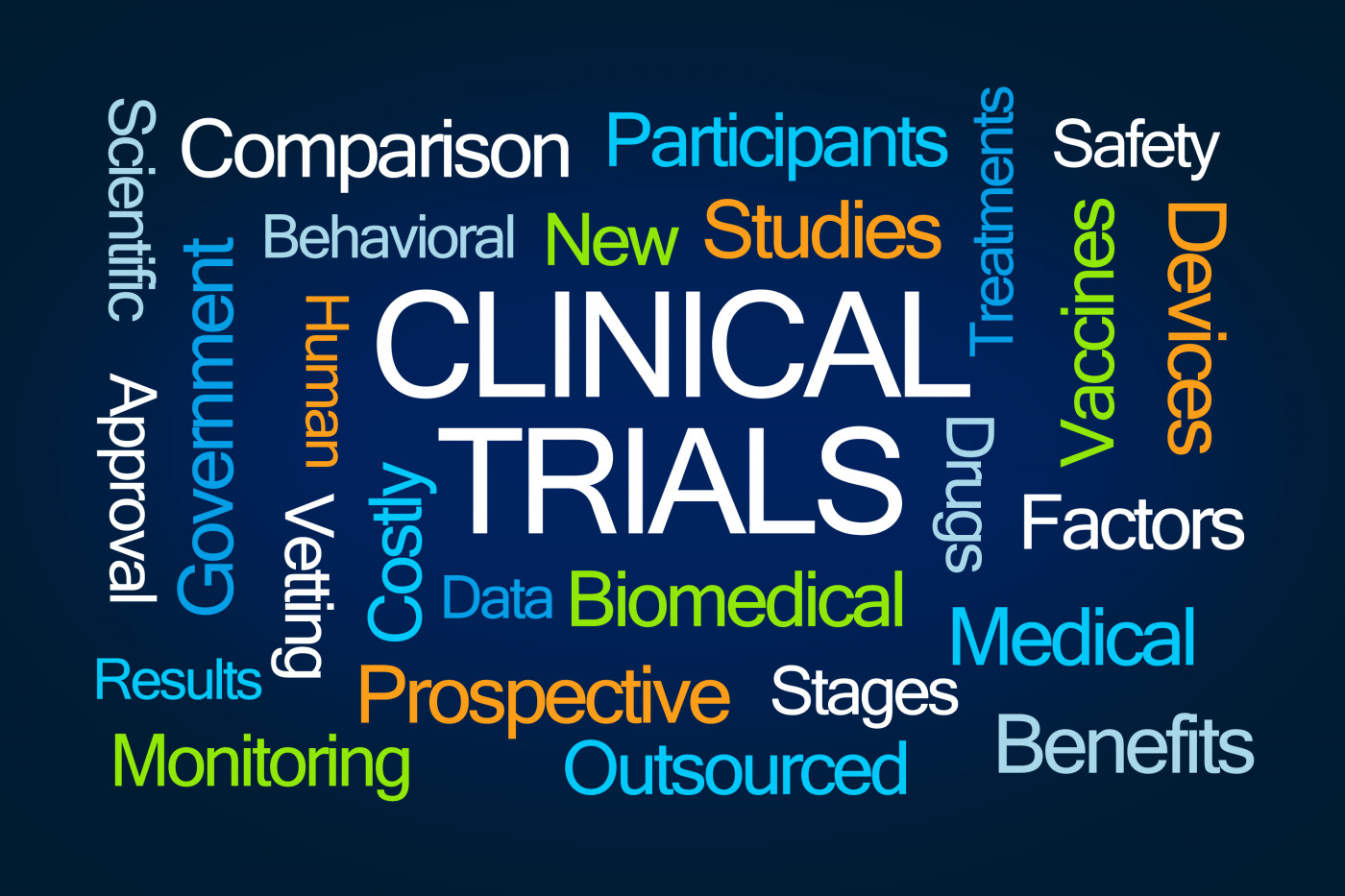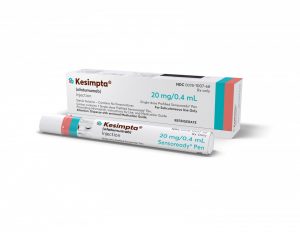New and Ongoing Trials Evaluating Kesimpta, Including as Switch Therapy
Written by |

Shutterstock
Upcoming and ongoing clinical trials aim to expand an understanding of Kesimpta (ofatumumab), the Novartis therapy recently approved by the U.S. Food and Drug Administration (FDA) to treat relapsing forms of multiple sclerosis (MS).
Kesimpta is an anti-CD20 monoclonal antibody, a type of treatment that is thought to work primarily by destroying B-cells, immune cells that drive inflammation in MS.
FDA approval was based on results from the Phase 3 ASCLEPIOS clinical trials (NCT02792218 and NCT02792231), which showed that Kesimpta outperformed Aubagio (teriflunomide) — an oral MS therapy marketed by Sanofi Genzyme — across multiple disease parameters, including reducing relapse rate and limiting disability progression.
Among the goals of these continuing and new studies will be to examine Kesimpta’s safety and efficacy in patients switching from other treatments, and how its use might affect immune responses to vaccines.
Extension study looks at multiyear use
Novartis is currently running an open-label extension study (NCT03650114), which is following about 90% of the ASCLEPIOS participants — all now being treated with Kesimpta — to collect long-term data on this new therapy, given as a 20 mg under-the-skin injection once monthly.
“We’re continuing to follow those patients originally randomized to ASCLEPIOS I and II trials up to five years. We’re not only collecting long-term data, but all other data as well — safety, efficacy, and convenience factors,” Dharmesh Patel, MD, vice president, medical unit head of neuroscience at Novartis, told MS News Today in an interview.

Kesimpta, by Novartis, is a once-monthly injection treatment for relapsing MS.
The study is also assessing how Kesimpta affects participants’ antibody responses to selected vaccines, including those for tetanus, and various bacterial-driven infections. This is of interest because Kesimpta kills B-cells, the immune cell primarily responsible for antibody production, and there have been reports of other B-cell targeting therapies interfering with vaccine-induced immunity.
Understanding how the treatment affects vaccines may also be of particular importance during the current COVID-19 pandemic.
“We remain optimistic that there will be a vaccine [for COVID-19] available … and we remain optimistic as we collect more data on people exposed to various disease-modifying therapies,” Patel said. “The science around COVID-19 is still evolving.”
With that caveat, some emerging reports suggest that people with MS are not at higher risk for COVID-19 complications than the general population, regardless of their MS treatment.
“We have not seen any concerns [related to COVID-19] in our clinical trials,” Patel added, “so that’s one area that’s reassuring.”
Collecting data covering up to five years of use in an open-label study could provide additional insights into MS and Kesimpta — both broadly and in the context of the pandemic.
“Hopefully, next year around this time we will have three-year follow-up, and then four-year follow-up, and so on,” Patel said.
Opening clinical trials
Novartis is also opening two open-label trials assessing the impact of switching from other MS therapies to Kesimpta.
The Phase 3 trial ARTIOS (NCT04353492) is enrolling people with relapsing MS who move to Kesimpta from dimethyl fumarate or fingolimod, two FDA-approved oral MS therapies marketed under the brand names Tecfidera, by Biogen, and Gilenya, by Novartis. Generics are also available.
Specifically, the study is looking at how the switch affects patients’ annual relapse rates and the benefits they perceive (patient-reported outcomes), as well as safety.
ARTIOS is open to patients who experience breakthrough disease on either one of the oral therapies — with breakthrough disease defined as at least one relapse in the preceding year or two relapses in the preceding two years, or the presence of actively inflamed brain lesions or new or enlarging brain lesions.
According to Patel, “a combination of clinical and/or imaging findings is also accepted for inclusion.”
ARTIOS is currently recruiting up to 550 eligible adults at sites in the U.S., Australia, and Europe; additional information can be found here.
Another open-label trial, OLIKOS (NCT04486716), expects to enroll about 100 people with relapsing MS who switch to Kesimpta from another anti-CD20 monoclonal antibody therapy. Currently, the only other such medication approved for relapsing MS is Genentech‘s Ocrevus (ocrelizumab).
Notably, Kesimpta and Ocrevus have different routes of administration: Kesimpta is given by subcutaneous injection once monthly (after an initial loading dose) using the Sensoready autoinjector pen or a prefilled syringe, whereas Ocrevus is administered by infusion every six months after its initial dose. This means that Kesimpta can be administered at home, while Ocrevus requires a trip to a hospital or infusion center.
“Patients, they want to administer wherever they are, they want to administer at their home; they want to make sure they are not missing their doses. They may not want to go to a treatment center,” Patel said. “Kesimpta now provides that option in a B-cell therapy.”
OLIKOS will primarily assess changes in inflammation — as evidenced by brain lesions on MRI scans, as well as immune cell counts — in people who switch therapies. Safety and patient-reported outcomes, such as the Treatment Satisfaction Questionnaire for Medication, are also being evaluated over one year of treatment.
OLIKOS is not yet recruiting participants, being in “the initiation phase in the U.S.,” Patel said. More information on the trial is available here.
In addition, Novartis is exploring other avenues for Kesimpta’s clinical development, including plans to test the medication in children with MS.
“We are going to investigate Kesimpta in pediatric relapsing MS populations, ages 10 to 17 years,” Patel said. “We are in the course of designing a trial to study Kesimpta in pediatric MS patients.
“We are not stopping research into Kesimpta,” he added. “Research continues with Kesimpta to help more patients know of its value.”


